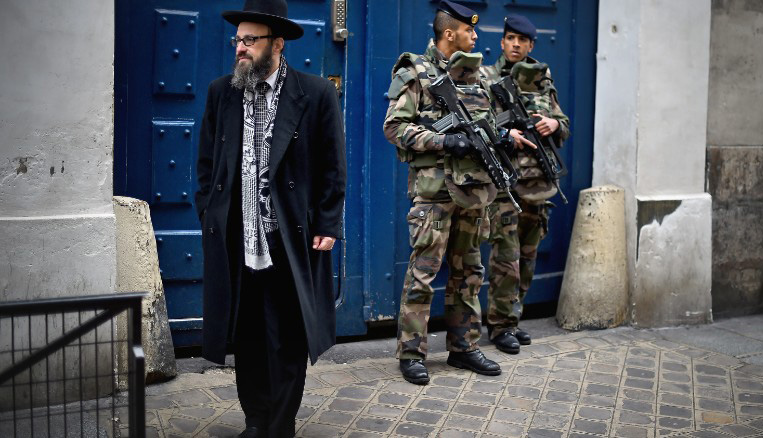Australia/Israel Review
The Last Word: Season of Ill Will
Dec 20, 2018 | Jeremy Jones

As winter storms and ever-shortening days came to Europe in December, it was not just the weather which left a chill in the air.
A survey across Europe, asking Jews about the subject of antisemitism, revealed that nearly 40% of the respondents had a personal experience of antisemitism during a five-year period, with 28% reporting harassment at least once in the past year.
The Fundamental Rights Agency of the European Union (FRA), which conducted the survey and released it on United Nations Human Rights Day, identified a number of areas of concern, highlighting the online sphere as particularly worrying.
The internet and social media might be considered the “virtual” world, but the reality of antisemitism is that it is on the internet, in the media and academy, on the streets and in places of worship.
With all the many challenges facing people across Europe, more than 80% of the survey respondents said that antisemitism was “the most pressing problem” facing them.
Thirty four percent of the surveyed Jewish Europeans said they avoided visiting Jewish sites or attending Jewish events out of fear for their personal safety and 38% said they have considered emigrating because they do not feel safe as Jews in Europe.
The FRA’s report noted that, from a victim’s perspective, there are numerous sources of antisemitic activity and a wide spectrum of perpetrators of anti-Jewish bullying, assault, abuse, vandalism and intimidation.
It is significant that even in countries where government agencies act as if the only significant source of criminal antisemitic attacks was the far right, the understanding by the targets of antisemitism is quite different.
Those who reported having been the victims of antisemitism reported that they believed the “perpetrators of the most serious incident“ were, in order, “someone they did not know”, “someone with an extremist Muslim view” and “someone with a left-wing political view.”
While the far right did feature, they were not only well below these groups but even lower than “a colleague from work or school” or “an acquaintance or friend.”
A factor contributing to this distortion could be the phenomenon noted in the FRA report of the overwhelming majority of victims of antisemitic attacks not reporting them to authorities, due to a belief that to do so would serve no constructive purpose.
While there can be year-to-year and country-to-country variations, in western Europe, Australia, USA and Canada in particular, analysts have, for a number of years, noted the persistence of rationalisation, justification and motivation for the anti-Jewish violence coming from these diverse and divergent sources.
For 25 years I produced and released annual reports on antisemitism in Australia and in the recent past these reports have been written and published by Julie Nathan of the Executive Council of Australian Jewry.
Without fail, there were people from the right who would allege that I gave too much attention to the activities of neo-Nazis and Holocaust deniers, people from the left who would claim that it was not really antisemitism if it was employed in the service of attacking Israel or other of their hate figures (including various Australian politicians) and I would be told off for documenting examples of antisemitism from Muslim (or even non-Muslim Arab) sources on the grounds that to do so simply gave succour to racists. On the other hand, Church leaders generally appreciated my documentation of the sinners in Christian ranks.
As 2018 drew to a close, there was a minor revival of interest in the experience of Jewish Australians of verbal and physical violence directed towards individuals purely on the basis of their identification as Jews.
I will address the issue of antisemitism in Australia in the new year, but let me say now that there are many reasons for concern – not least of which has been the active denial of the reality of antisemitism by those who somehow believe that their political platforms are of greater value than the ability of Jewish people to enjoy fundamental human rights.
Tags: Antisemitism, Australia, Europe






